We have a rule on NomadTalk: we never review places or write guides to places that we’ve not experienced fully ourselves. That means most of our guides will be focused on Asia and, in particular, Southeast Asia. This is our first country guide for digital nomads, and we begin in the most popular international destination for digital nomads: Thailand.
Thailand is the world’s most visited country. People choose it because it’s safe, well-developed (in most locations) and it has a very low cost of living. You can survive in Thailand on next to no money and thrive on numbers that would barely buy you lunch in New York City or London. For digital nomads, Thailand is a very appealing location and the city of Chiang Mai might be considered the largest nomad hub in the world.

Table of Contents
About This Guide
Before we get into discussing Thailand – we just want to take a minute to lay out what you can expect. This is not a city guide; we will review individual cities separately. It is designed to let you know what you can expect from choosing to live and work in Thailand in general.
We’ve laid the guide out in separate sections which address the specific concerns of some digital nomads. If you don’t need a section, feel free to skip it.
Thailand: The World’s Most Popular Destination
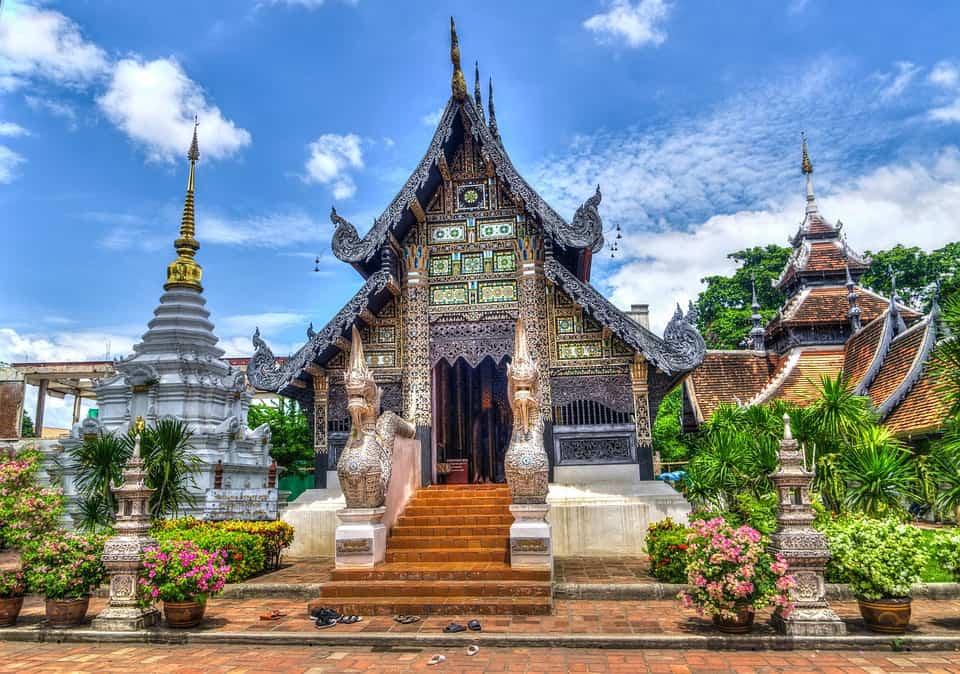
Thailand is not, contrary to many people’s belief, the only attractive place to live in Southeast Asia. The people are quite lovely but no more so than those of other countries in the region. There are plenty of great places to be a digital nomad. So, why Thailand?
Well, Thailand has done two things exceptionally well compared to nearly all the other countries not just in the region but in the world. Firstly, it has had one of the most competent tourism authorities in history – TAT (Tourism Authority Thailand) understood the power of marketing long before anyone else in the industry did.
Thailand’s reputation as a tropical paradise is, almost, all thanks to TAT’s hard work. They’ve been selling the Land of Smiles brilliantly since the 1970s. For contrast, Vietnam’s tourism authority only really got started in the 201X’s and it is still a long, long way behind Thailand’s tourism industry.
Secondly, Thailand ensured that it became the regional hub through its two airports in Bangkok. If you were flying in and out of Southeast Asia there was a good chance that you were going to spend at least a little time in Bangkok. Kuala Lumpur, Singapore, and several other places may have nicer airports, but, even now, Bangkok is much better at bringing the passengers in.
Combine these two things and most people’s first experience of Southeast Asia takes place in Thailand. Thailand then goes on to surprise people with its pleasant lifestyle, rate of development and cheapness. Visitors find it very easy to fall in love with the country.
I know I did when I first visited nearly 15 years ago, and I still find myself drawn back here even now after living in nearly every country in the region. My partner, Megan, has gone through a similar experience recently and she’s from Southeast Asia.
In general terms, Thais are friendly and open to foreigners though this has become a touch jaded in the places which see the most tourists. They are an exceptionally polite people and extreme social value is placed on this politeness. It’s good to bear this in mind when interacting in Thailand.
The country is not without its problems, and for the most part, you are best avoiding getting involved in these issues, but it’s clean, safe and welcoming and it’s great value for money. Almost every traveler to Thailand is going to have a good time of it.
What Do You Want From Thailand?
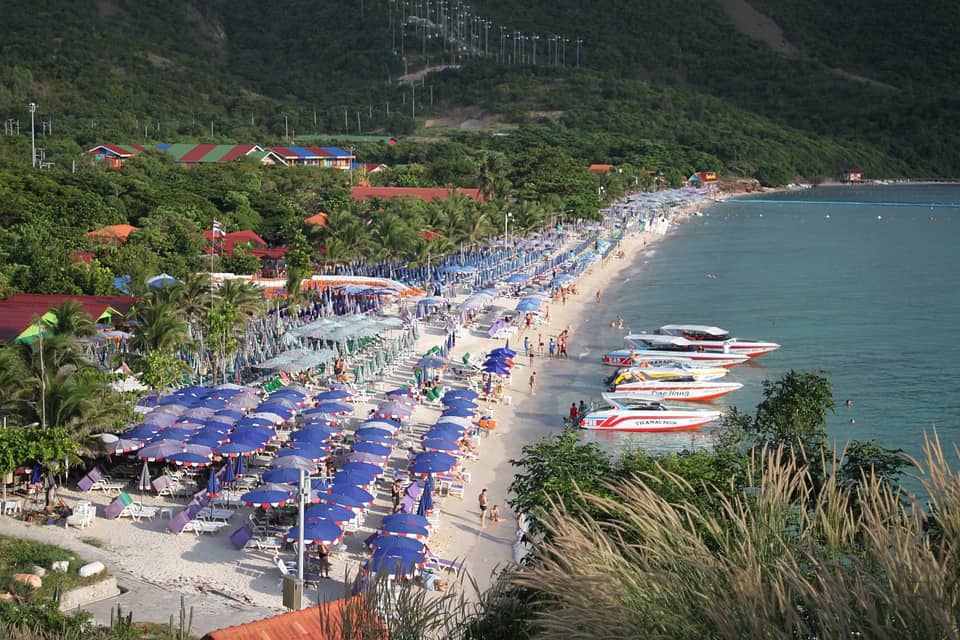
You have a lot of options of places to be in Thailand. We’ve got city guides for Chiang Mai and Bangkok on the site and Udon Thani will be coming soon.
However, you might want to head South to the islands, to Phuket or to Pattaya. These are your best places for tropical parties and tourism run amok.
There’s something very pleasant about the rush of people and the availability of beaches for many people. Megan and I aren’t big on beaches and my own short time on the islands and in Krabi didn’t let me make up my mind about the South’s most popular spots.
I will note that anecdotal reports from others suggest that they can be a bit less friendly in the beach resort towns than traditional Thailand and that ripoffs abound. I didn’t experience any such thing while I was in the South, though.
The very Southernmost parts of Thailand border Malaysia. They have a strong Muslim influence and there has been a long-running conflict between this area and the Thai army. Whilst travel is discouraged to this area – I had no issues in the week I spent in Hat Yai and certainly didn’t feel at any real risk during that time.
Fellow long-termers to the region say they find that bit of Thailand a bit boring, though it’s on the edge of several spectacular national parks, I quite liked it. I also found it to be even cheaper to live in and visit than the rest of the country.
The middle of the country is Bangkok and the surrounding areas and Bangkok is a big, bright, cosmopolitan city, which blends traditional and modern Thailand nearly perfectly. It would be unusual for a first-time visitor to Thailand not to spend some time in the city and many fall in love with it.
While the most famous bits of the North are Chiang Mai, Chiang Rai, and Pai which make up the backpacker’s holy trinity of towns “off the beaten path” and the digital nomad hub of Chiang Mai – there are plenty of other options in the region and we really like Udon Thani if you want great facilities, affordable prices and plenty of other Westerners to bond with.
Don’t forget though that the further north you go, the further you are from a beach – it’s a mountainous area a long way from the sea.
Getting Into Thailand – Visas And Other Stuff

Most first-timers who come to Thailand, from Western countries, will not need a visa for their visit. Thailand gives citizens of nearly all developed countries a 30-day visa exemption (that is it functions like a visa, but you don’t need to apply for a visa at an embassy) on arrival.
That means you can just pack your bags, buy a ticket and jump on a plane. But… even though you probably won’t need a visa to enter Thailand, but you will need a few things that will ensure you get on the plane and into Thailand.
These are:
- 20,000 Baht in cash. You may bring this in other currencies, but they must total more than 20,000 Baht at today’s exchange rates. You may not offer up bank statements, credit cards, debit cards, etc. it must be cash.
- Evidence of a hotel or accommodation booking. This does not need to cover your entire stay in Thailand, but it must show your first night in the country.
- A ticket leaving Thailand that is dated within 30 days of your entry. Yes, you need to prove that you will be going when your time is up in Thailand.
These are known as the “3 proofs” when following discussions about Thailand’s visa regime.
If you are getting a visa rather than relying on a visa exemption – you still need the 3 proofs.
In the last year or so, Thai Immigration has become much stricter about enforcing the requirements for 3 proofs. People are regularly prevented from entering Thailand and then deported at their own expense for not being able to show these 3 proofs. So, make sure you have them.
You may not be asked for them but if you are and can’t show them, prepare for a miserable time of things.
Finally, your onward ticket may also be required by the airline that you fly with. Airlines can (and sometimes do) refuse boarding to passengers to Thailand that cannot show an onward ticket.
If you know that you are going to be staying in Thailand and extending your stay when the 30 days is up – you can buy a cheap train or bus ticket online and use that as your proof. There are also several services online such bestonwardticket.com that provide a rented flight ticket for a period of up to 48 hours that you can use to show immigration and airport services at a very low cost.
You can extend a 30-day visa-exempt visit at an immigration office in Thailand for 1900 Baht for another 30 days.
If you have a single entry tourist visa (valid for 60 days) you can also extend this for another 30 days for 1900 Baht at an immigration office in Thailand.
Language In Thailand

The language of Thailand is Thai. There are several ethnic minority groups in the country, particularly hill tribes in the North, that have their own languages too.
English is spoken, to some extent, at most major tourist attractions but otherwise Thai is much more essential than in other Southeast Asian countries. In fact, ASEAN has put Thailand on a list of major concern over its poor English speaking abilities.
We’ve spent about 2 years in Thailand in total and speak quite a bit of Thai through constant exposure to the language. In fact, it’s quite amazing to see how much we’ve absorbed.
Digital nomads that want to get the most out of Thailand would be well advised to take at least an “in-flight” course in Thai.
Internet In Thailand

Don’t fret dear digital nomad – internet is plentiful in Thailand and whilst not 100% reliable; it’s very good for the region. Thailand has recently begun upgrading its lines too and 20MB Internet is standard almost everywhere and up to 500MB is available, if you’re willing to pay for it.
Cellular telephony services are also cheap to access with most networks providing bundled minutes or data packages for a lot less than you would pay at home.
You will need a passport to set up Internet or Cell services and you must have a valid visa or visa exemption in that passport.
Most rented accommodation includes Internet but not all of it – so check first before booking. You can buy wired Internet on a monthly contract basis (no minimum term) from Sinet but not all buildings have access to Sinet – so check that first too.
Money In Thailand
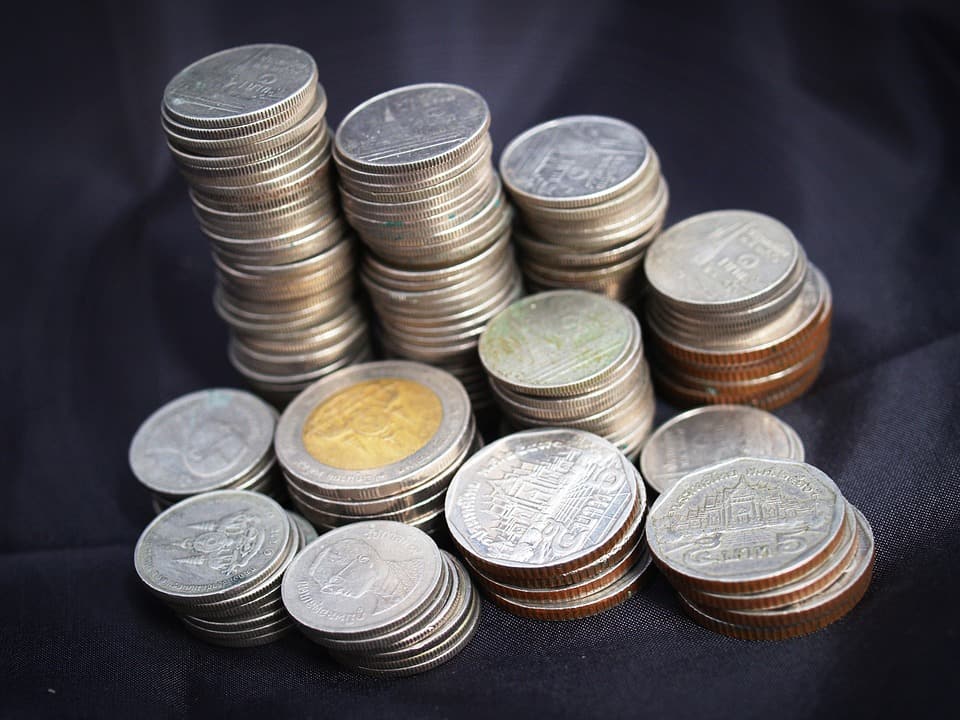
The currency, as you have probably guessed by now, is the Thai Baht. The typical range for the Thai Baht against the US dollar is 28 – 36 Baht.
There are ATMs everywhere in the country and as long as your card bears a Mastercard, Visa or UnionPay logo there’s a good chance it will work pretty much everywhere.
However, Thai ATMs tend to charge a fairly steep service charge for foreign cards – it may be possible to get a bank account in your own country that refunds these charges. Charles Schwab, for example, does this for American clients.
It is also possible to open a bank account in Thailand on a tourist visa. This process isn’t quite as easy as it once was, but it only takes about a day to sort out an account in most banks. I’ve held a Thai bank account for over 5 years now. Bangkok Bank has been excellent and yes, I bank in English and not Thai.
With a local bank account – you can also set up a PayPal account, which is very handy, indeed. Also available in English though changing the language for the first time may require help from a local.
Many things are cheaper in Thailand than they are in your home country. Some things, particularly imported items, may not be. Make sure you keep a careful eye on the exchange rate to ensure you’re getting value for money.
It is worth visiting nearby Malaysia if you want to buy anything electronic and expensive – things are much cheaper there.
About paying by card: it is absolutely standard practice for Thai businesses to charge you a surcharge of up to 3% for paying by card. Which is why almost everybody pays in cash for everything.
One last thing: do not treat Thai currency with disrespect. It bears an image of the Thai king and insulting the currency can be interpreted as insulting the king. This carries a potential prison sentence of up to 20 years. If you drop money, pick it up with your hands, don’t stand on it. Never write on it.
Finding Accommodation For Digital Nomads In Thailand

For us, the biggest single reason to choose Thailand for your first digital nomad adventure is the ridiculously cheap but top quality accommodation.
At almost every budget level, you can find something substantially better than you could find at home for a similar price.
Thais also seem to have a penchant for short-term lets that almost nowhere else in the world offers – it is very easy to turn up and find an apartment for pretty much any rental period.
You need no special visas or permissions to enter a lease in Thailand – though you must have a valid visa when you sign the contract (it does not need to be valid for the length of the contract) and a valid passport. You can sign a 12-month lease on a 30-day visa exemption if you want.
You will pay more to live in Bangkok, Pattaya, Phuket and the islands than you will to live in the rest of the country. However, even in the tourist hotspots – cheap accommodation can easily be found.
Travelers with tight budgets can find decent accommodation from $120 a month in most of the county and from $200-$250 a month in the highest demand locations.
Those in truly desperate situations will be pleased to learn that you can rent a place for as little as $50 a month in Thailand. Though we warn you – it’s not going to be great and you are very unlikely to have air conditioning available for that price.
If you have a bit more to spend; luxury is available in most places too. $300 a month outside of Bangkok will get you a nice and substantially roomy place, $500 in Bangkok (apart from a few very popular areas) will too.
You can also spend as much as you like and while some digital nomads will quail at the idea of $1,000+ apartments, others are very happy to pay for opulence.
Megan and I spend just under $600 a month in Chiang Mai. This gives us a 1 bedroom apartment in a 4-star hotel complex and includes regular cleaning, water, Internet, security, etc. the only additional bill is electricity. We think it strikes the right balance between comfort and convenience for us.
If you are renting short-term make sure to pick somewhere that supplies bedding and basic amenities. You don’t want to get a super deal on a place to sleep and then spend three times as much as that on pillows and sheets.
Security deposits are, normally, returned at the end of your stay without fuss. Large landlords with more than 5 properties to rent may only require a single month’s rent in bond. Smaller landlords with fewer properties are legally allowed to require two month’s rent in bond. This may (or may not) affect where you choose to stay.
You do not need to speak Thai to be able to rent a place in Thailand.
The best approach to look for accommodation is to book a place online for a day or two when you arrive and then go out on foot and see what you can find that takes your fancy.
Never use AirBnB in Thailand. It’s terrible value. You can almost always do better by booking directly with a landlord.
One last thing on accommodation – check the rate at which you will pay for electricity, some landlords charge the meter rate from the provider, but some charge a lot more. Electricity’s not expensive in Thailand but it can be if you’re paying 4 times what you should for it.
Co-Working Spaces In Thailand For Digital Nomads
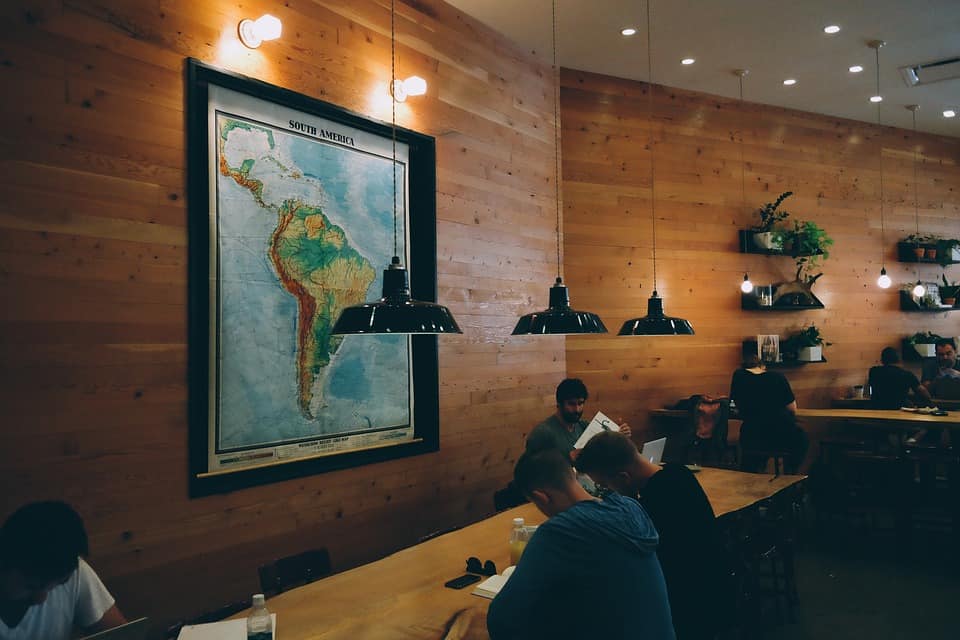
If you want co-working – you’re in luck. Nearly every town and city in Thailand (and some of the islands too – particularly the larger ones) has a co-working space.
You ought to be aware that these facilities are not “free to use”. Though some work on the basis of “buy a drink” rather than a daily fee (Camp at Maya Shopping Mall in Chiang Mai is a massive co-working space that sells drinks not seats, for example).
Typically, you’re looking at about $100-$150/month for a desk in a co-working space. You may or may not be given a locker as part of this payment. You may or may not get free coffee and/or tea and/or soft drinks. If you’re staying for less time; you can pay weekly or daily, but this may cost substantially more than the pro-rated monthly rate.
Some co-working spaces offer a free day’s trial before charging. Don’t forget to Google and see if you can find such an offer if you want to co-work.
Beware though, the co-working trend has seen a lot of new businesses move into co-working and then collapse because they have drastically over-estimated demand. It’s worth calling a co-working space to see if they’re still open before you rent an apartment next door or decide that it’s the best place to work from.
I don’t use co-working. I’d rather put that $150 into a better apartment. If you’re at the lowest budget level – there’s a huge difference between a $300 apartment and a $150 apartment in Thailand.
Almost every coffee shop in the country has high-speed internet and in most cases, it’s free to use too – if you want to work in a coffee shop, buy drinks on a regular basis. This can be much cheaper than co-working.
Food And Drink In Thailand
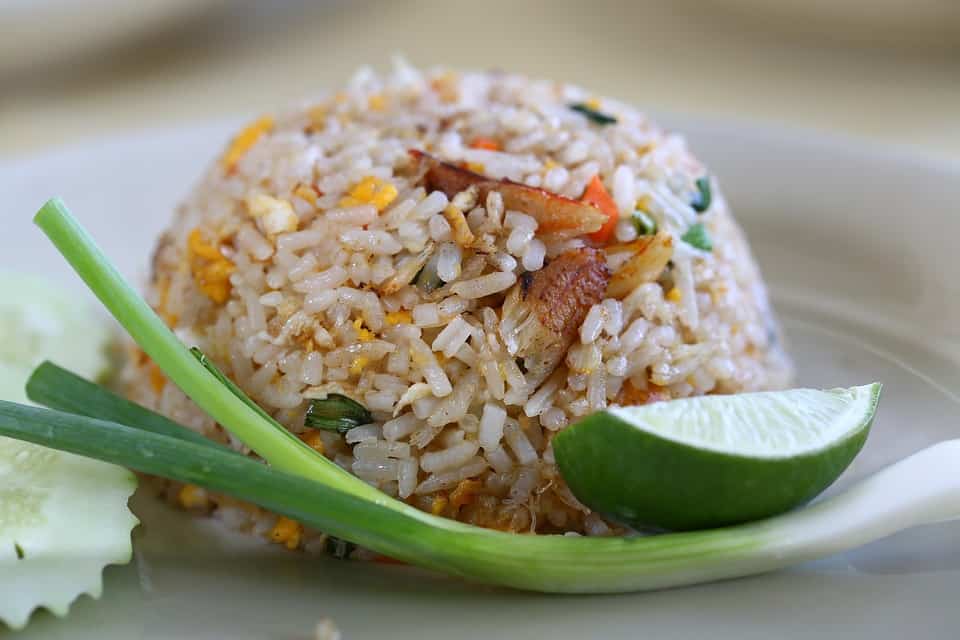
Let’s do this in reverse and say, drinks are not especially cheap in Thailand. If you’ve just left London or New York finding beers for $3 is going to seem cheap but in nearby countries such as Cambodia or the Philippines, you could buy a bucket of beer for the same price as a bottle in Thailand.
This is, probably, not a big deal unless you intend to party like your life depends on it. In which case, you might want to consider other places in Southeast Asia to set up in.
Food, however, is cheap and plentiful. Street food in Thailand is famous for its high-quality and rich, varied appeal. It is OK to point at things you want to eat if you don’t know what they’re called in Thai but never point at people – that’s rude.
You could happily live on $5 a day if you stuck to street food. You could get this down even lower if you wanted to live on pot noodles (we know people who have done this) but you probably shouldn’t.
Meals in restaurants are going to put the prices up a bit but not as much as you might think. You can easily eat out in Thai restaurants for $2-$3 a person (excluding alcohol). Higher class establishments will use better ingredients and look a little nicer and charge around $5-$6 a person, this is also the typical price of a Western meal outside of the tourist spots.
If you’re in the big tourist areas except to pay more. $10 would be typical for basic Western fare there and you can easily spend much more.
Fine dining is cheap by the standards of most places, though it can’t compete with the prices in nearby Cambodia, and you can eat a world-class meal in much of the country and see change from $50 per person.
Basic grocery items are cheap and most of what you would buy at home is available in Thailand. Markets are cheaper than supermarkets which are cheaper than 7—11. However, none of them are expensive. 7-11 does a range of Westernized food which is great value and their ham and cheese toasties (they toast them for you in the store) are famous post-pub food with expats and nomads alike.
Imported foodstuffs, however, are not cheap. Cheese, cereals, spreads, potato chips (not locally made), etc. are much more expensive than they would be at home. It’s worth noting that most people don’t mind this and they eat local food with just the occasional imported treat but if you don’t want to change your eating habits, this can add up.
Wine and spirits are heavily taxed in Thailand and you can expect to pay large premiums for them both in stores and in bars.
We’d also point out that Thailand has strange alcohol laws. They won’t sell alcohol outside of certain hours by law. There are whole days when it’s illegal to sell alcohol too. If somebody says they can’t sell you alcohol, they’re not being a pain, they’re following the law. So, don’t get upset.
Safety And Security For Digital Nomads In Thailand

One of the reasons that Thailand remains one of the world’s most popular destinations is that, in general, it’s one of the safest spots you can choose in Southeast Asia.
However, that doesn’t mean it’s completely perfect.
Single women will be pleased to know that sexual assault is rare and is more likely to take place when partying with fellow Westerners than with any locals.
Street crime and violent crime is vanishingly rare with the singular exception of when locals are provoked by angry, rude Westerners. No matter what happens keep your cool – it will ensure you don’t get punched.
Avoid all Karaoke Bars and KTVs. They are infamous for ripping off customers. They may use violence to extract payments. In a similar vein, never, ever go in an upstairs bar in a red light district. The promised “live show” will never materialize but an enormous bill will be presented and if you want to leave with your limbs intact, you’re going to have to pay it.
Most shops and markets have visible prices. Never pay more than the sticker price. It’s generally OK to haggle in markets but it’s a dick move in most stores.
ATM skimming is rare and if you want to avoid it, always use an ATM attached to a bank or indoors in a shopping mall. Check the ATM for loose parts, etc. before you put your card in it.
Never accept an offer of a cheap tuk-tuk ride around the sights. Never let a kind local tell you that an attraction is closed without checking yourself (this is part of a scam designed to get you to go somewhere expensive). Be warned that rentals in tourist areas of bikes, watersports equipment, motorcycles, etc. often come with scam charges for damage at the end of the rental. Sometimes, it’s better to take a taxi.
Tuk-tuks are notorious for overcharging in most tourist areas. Don’t be afraid to haggle. If you can’t get value, don’t get angry, walk away then book a Grab Taxi (there’s no Uber in Thailand) using your phone.
Be warned that it’s a bad idea to upset Thailand’s ladyboys too – they make look superbly feminine but they are famous for fighting like Muay Thai boxers. Be polite, be respectful and you’ll be fine.
Which is pretty much the motto for travel in Thailand. Politeness, kindness, respect, and calmness go a long way. I’ve spent 5 years on and off in Thailand and never had any real issues here. I don’t expect that you will either.
Clothing And Footwear In Thailand
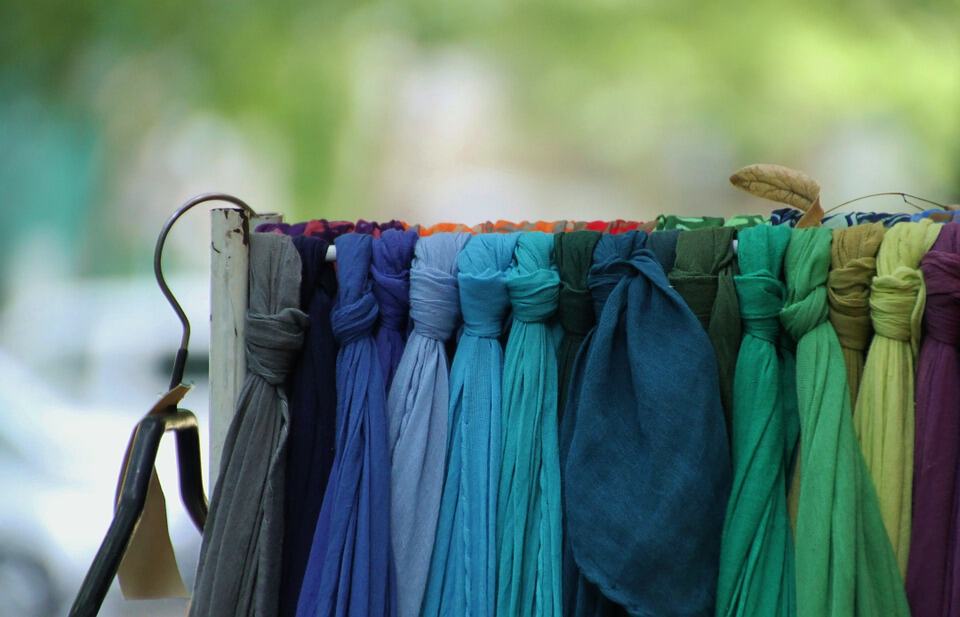
Clothes and shoes are really cheap in Thailand but there’s a bit of a problem – Thai people are, generally speaking, much smaller than Western people. Thai sizes are thus a lot smaller than Western sizes. You may find that you’re a medium at home but an XXL in Thailand.
This isn’t the end of the world if you’re a medium or have size 7 feet. But the bigger you are, the harder it is to get clothes and shoes.
I am a big chap. I have US size 13 feet and a shameful 40” waist. I can buy t-shirts in Chiang Mai and occasionally shoes (though I have no choice in shoes) but for trousers, I often need to go to Bangkok. If I want a limited choice in shoes I also need to go to Bangkok.
Clothes and shoes are still cheaper for me in Thailand but once you add the cost of return flights to the capital – they’re not much cheaper.
Online shopping is good, but it can be a nightmare to return things that don’t fit.
Health Care In Thailand For Digital Nomads

Good news! Thailand is one of the world’s premium medical tourist destinations. Private healthcare in the country is very affordable (for private healthcare) and world-class.
Bad news. It’s not free. It’s not even close to free. While you can definitely afford to see a GP from your own cash – many people cannot afford to access services in an emergency. At a minimum, if you’re not traveling for long in Thailand – you need travel insurance. If you’re staying longer – you need health insurance.
We’ve done a whole piece on travel insurance vs. health insurance here. It’s a really good idea to understand the difference before buying either type of insurance.
Dentistry is good in Thailand and much cheaper than back home but if you have a lot of work to be done – we’d recommend Cambodia as the best dentistry tourism location in the region. Services there are very, very cost-effective and in contrast to the rest of Cambodia’s health services, they’re also excellent.
Illegal Drugs In Thailand
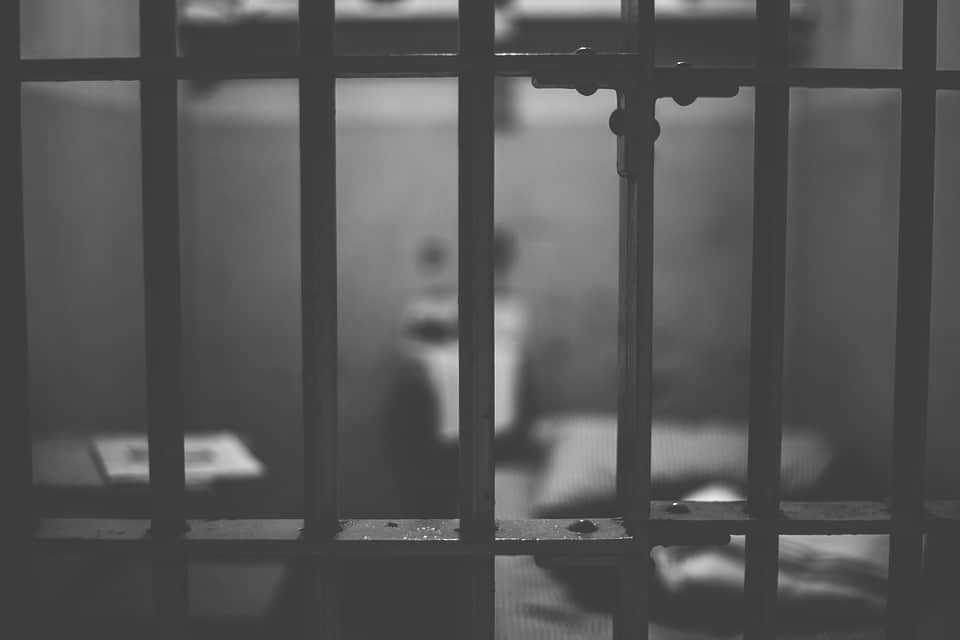
We’re only going to say this once. Across Southeast Asia drug laws are draconian. If you are caught in possession of drugs you are going to spend at least 2 years in a Thai jail and if they decide you’re in possession of enough drugs to charge you with intent to supply (and note: the quantities of drugs required for this are tiny by most Western standards) then you may be going to jail for life.
Theoretically, they might even execute you for drugs-related offenses – though, in practice, this won’t happen.
Jails in Thailand are either awful or really, incredibly, awful. You would not want to spend a day in one – let alone years and years and years.
So, while we’re not your mom and dad and we’re certainly not moralizing – we strongly advise you to stay away from illegal drugs in Thailand. End of story.
Dating In Thailand For Digital Nomads
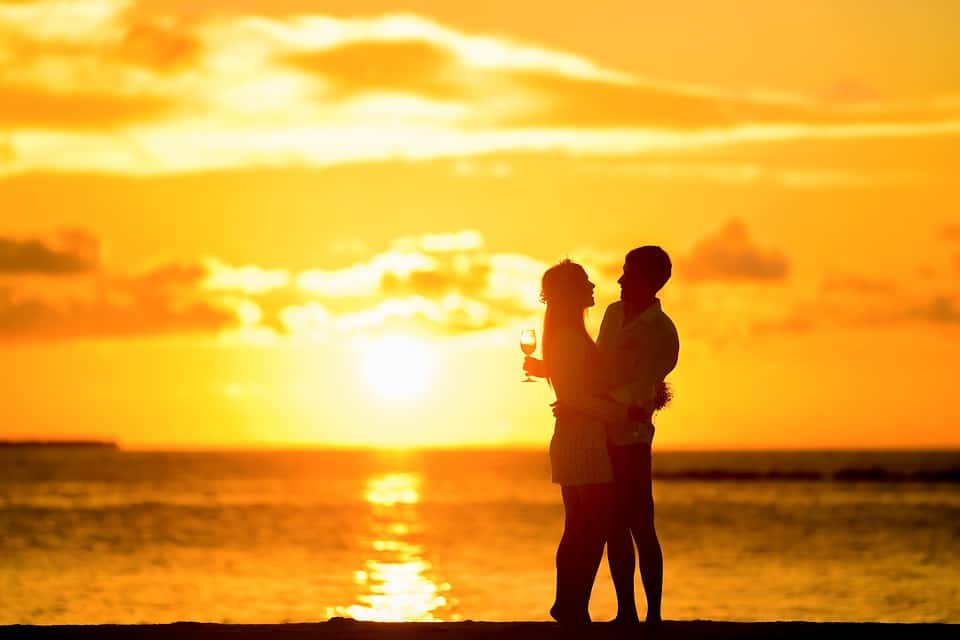
If you want to meet other nomads or to date Western backpackers and tourists; Thailand is probably the best place in the region to be. There’s an endless supply of short-term visitors to the country and even a few longer-term ones.
It’s worth noting that as with all of these scenes in Southeast Asia – there are always more single men than women. So, women can afford to be choosy and often are.
Guys, if you find dating at home challenging, you may find this is even harder.
Dating locals is possible. However, it is fair to say that “good” Thais (both male and female) are expected to date local and there is strong societal pressure to do so. This is particularly true as you climb the social ladder. “Hi-so” Thais are unlikely to want to date a foreigner unless there’s a reason that a local partner would not accept them.
The most common dating relationship in Thailand is between a Western Man and a local lady. We’d estimate that a very large number of these women are either divorced (and thus unwanted in the Thai dating pool) or sadly, prostitutes (often single moms).
Again, we’re not your parents but in our experience; dating prostitutes is a very bad idea. Based on observation and long conversations around the region – we reckon you have a 1 in 100 or maybe 1 in 1,000 chance of things working out.
You wouldn’t date a prostitute at home for good reasons. Those reasons don’t change because you are in a foreign country.
Divorcees, on the other hand, are often the perfect partners because they know how hard it is to find a local partner.
Thai relationships are often quite transactional. That means you do something for them, then they do something for you (or vice-versa). This can make it hard to differentiate between “do they love me for me?” or “do they love me for my money?”
You should be aware this is true for Thai-Thai relationships as well as Thai-foreign ones. You’re not being singled out – this is the way things are.
Foreign female – Thai male relationships are something of a rarity. We would recommend that all women interested in dating in Southeast Asia read up on the dating culture in detail and understand how face culture works. Getting it wrong can have much more severe consequences than it does for men.
The biggest challenge, however, is this – Thais, generally, have very poor English language skills and those with the best skills tend to be “hi-so” (high society – ruling class) and thus not interested in dating foreigners. So, if you want a meaningful long-term relationship, you’re probably going to need to learn Thai.
Finally, uniquely for digital nomads – it’s very important to realize that most Thais not only haven’t traveled much but also aren’t keen on traveling much. They’ll visit somewhere briefly but their hearts and homes are always in Thailand. It’s another reason so many foreigners settle down in the country.
General Shopping In Thailand For Digital Nomads
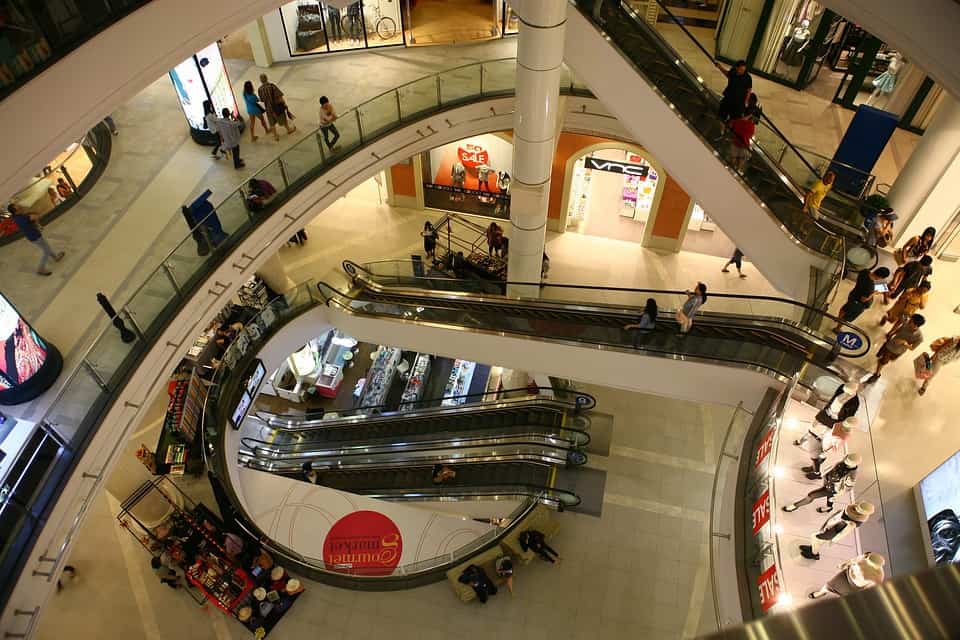
Thailand’s a funny place and some things are notably cheaper in the rest of the region, but a good rule of thumb is that if it can be sourced locally – it will be very good value and if not, it’s going to cost a small fortune.
You can, in most areas, shop online in English – supermarkets (such as Tesco Lotus, Rimping, Tops, etc.) all have delivery services that are reasonably efficient. You can order food online (major fast-food chains deliver, and Food Panda covers pretty much everything else). For everything else, there’s Lazada and Shoppee.
Amazon will deliver some goods to Thailand and you can now pay the taxes in advance so there are no nasty shocks when the parcel arrives. eBay also deliver to Thailand, in some instances, and if you can’t find what you want on Amazon – it’s quite possible you can buy a new and boxed product on eBay (which is how most of us get our Kindles here).
Religion In Thailand

Most ethnic Thais are Buddhist. There are very few Christian Thais though some of the ethnic minorities from Myanmar who have fled persecution there are Christian and there are Christian churches serving the Korean and Filipino communities in the country too.
In the very South of the country near Malaysia, most ethnic Thais are Muslim.
In general, don’t talk about religion except to ask general polite questions and always treat monks with the utmost respect. Give up your seat for a monk if requested on public transport. Don’t take a monk’s photograph without their permission. That sort of thing.
The biggest event in the Buddhist calendar is the New Year, Songkran, which is celebrated in April. It’s a fun time which is famous for its enormous water fights. Digital nomads should be advised to wrap all electronic kit in plastic during this time or leave it in their homes.
Seriously, when the water starts being thrown around – it can be brutal. Nobody will stop for your equipment no matter how much you beg them to. Shops sell waterproof pouches for this very reason. They’re cheap and easy to buy. Failure to do so can work out very expensive.
General Thoughts On Thailand For Digital Nomads

Thailand is an excellent place to start as a digital nomad but… we find an awful lot of people never go anywhere else. They turn Thailand into a “home away from home” and they’re done.
They often write about being Nomad 2.0 and how this means digital nomads no longer need to travel.
There’s nothing wrong with settling down but it seems a real pity to stop in the first junction on the road.
For this reason, we’d recommend that you visit Thailand after spending some time in some of the really enjoyable destinations that the rest of Southeast Asia has to offer but which are less polished.
In particular, we have a deep love for Vietnam, the Philippines, and Cambodia. All of which can offer superb digital nomad experiences in the late 201X’s and beyond. Malaysia is also amazing and every bit as appealing as Thailand and it’s more modern in parts too.
Then when you need a little sanity and a little Westernized-break from the developing nature of these places, head to Thailand and take a break. That’s my favorite way of spending time here – as a recovery spot from more challenging trips.
We’re not saying don’t spend time in Thailand because it’s an awesome country, but we do think that if you want to be a digital nomad; you might be better off starting your journey somewhere else. However, if you decide to ignore us and come straight here, we’re pretty certain you’ll be happy in your choice. ?
